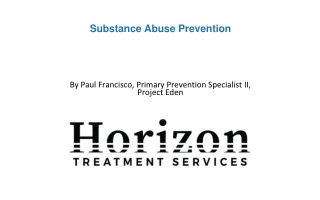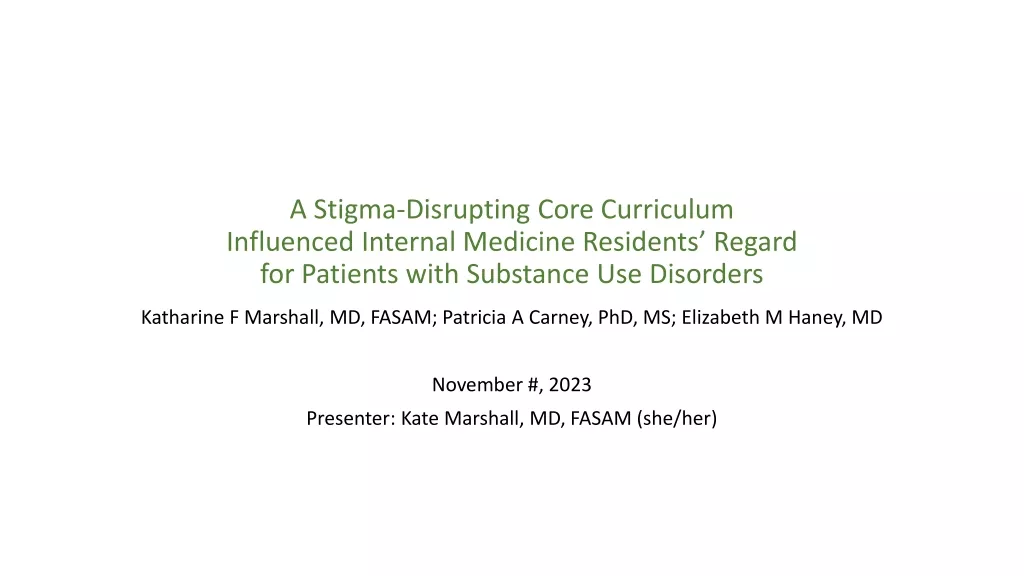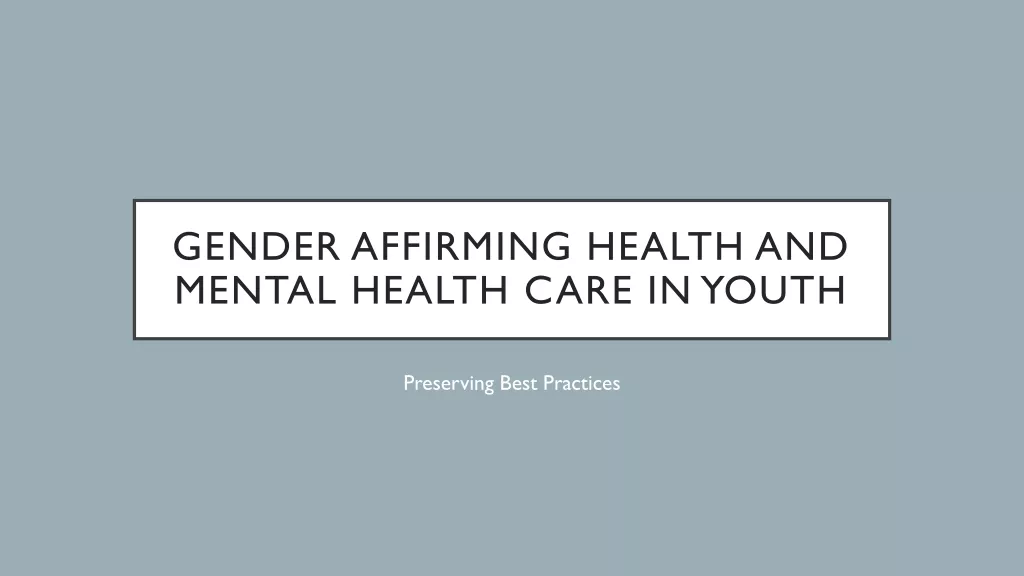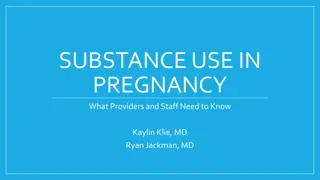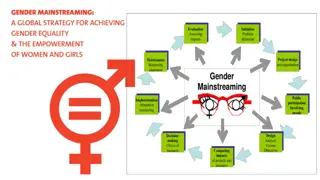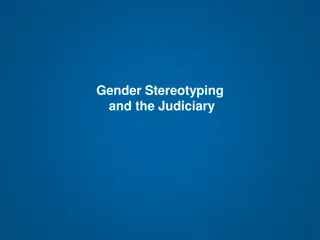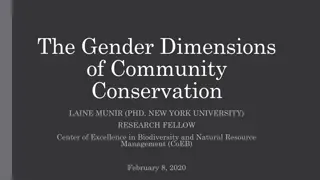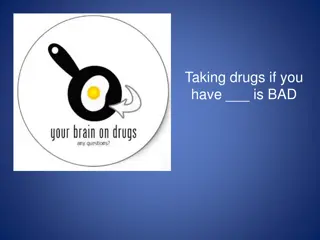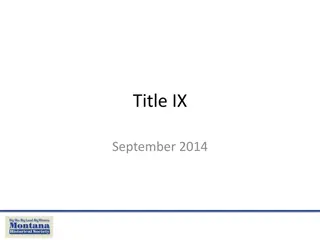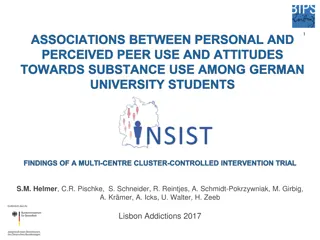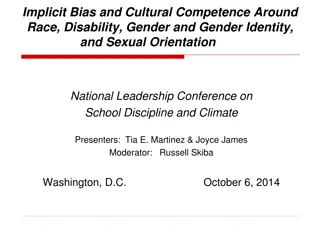Gender Disparities in Substance Use Prevention and Treatment for Women
This study by Julie Schamp explores the experiences and barriers faced by female substance users in alcohol and drug prevention and treatment. It highlights significant gender differences globally in substance use, the challenges women encounter in accessing treatment, and the need for gender-sensitive services. Through mapping services in Belgium, literature reviews, interviews with female substance users, and expert views, the study aims to provide recommendations for developing gender-sensitive demand reduction services.
Download Presentation

Please find below an Image/Link to download the presentation.
The content on the website is provided AS IS for your information and personal use only. It may not be sold, licensed, or shared on other websites without obtaining consent from the author.If you encounter any issues during the download, it is possible that the publisher has removed the file from their server.
You are allowed to download the files provided on this website for personal or commercial use, subject to the condition that they are used lawfully. All files are the property of their respective owners.
The content on the website is provided AS IS for your information and personal use only. It may not be sold, licensed, or shared on other websites without obtaining consent from the author.
E N D
Presentation Transcript
DEPARTMENT OF SPECIAL NEEDS EDUCATION EXPERIENCES AND BARRIERS OF FEMALE SUBSTANCE USERS IN ALCOHOL AND DRUG PREVENTION AND TREATMENT Julie Schamp
GEN-STAR 26/10/2017
BACKGROUND Significant gender differences worldwide regarding the use and misuse of alcohol, prescription drugs and illicit substances Different progress > more severe problems Outcome 26/10/2017
BACKGROUND Gender gap (childbearing age, long-term residential services) Treatment entry for women may be complicated Socio-cultural factors Socio-economic factors System barriers Women homogeneous Diverse needs, concerns, experiences and aspirations Proper support for a good life 26/10/2017
OBJECTIVE How are the lives of female substance misusers constrained and supported by substance use prevention and treatment services? Obstacles Challenges 26/10/2017
METHODS 1. Mapping of available gender-sensitive services for alcohol and drug users in Belgium 2. Review of the literature and international comparison 3. Narratives and treatment experiences of female substance misusers 4. Secondary analysis of gender differences in population and treatment samples in Belgium 5. Experts views on challenges and prerequisites and recommendations for further developing gender-sensitive alcohol and drug demand reduction services 6. Integration of study findings and formulation of guidelines and recommendations for gender-sensitive alcohol and drug demand reduction services 26/10/2017
METHODS In-depth interviews Recruitment: agencies and services 60 female substance users (heterogeneous group) 55-100 minutes, audiotaped and transcribed Interview guide: experts + literature 26/10/2017
RESULTS Flanders 11 10 9 Wallonia 9 11 10 Total 20 21 19 Age category 20-30 30-45 45+ Flanders Wallonia 8 3 2 12 0 3 0 2 Total 16 11 4 19 3 4 1 2 Substance Heroin Cocaine Cannabis Alcohol Medication Speed Ecstasy GHB Continuum of care Flanders Wallonia Outpatient Residential Total 28 32 8 8 2 7 3 1 1 0 14 16 14 16 Flanders Wallonia 23 Total 48 Children Women who have child(ren) Women who have child(ren) in the centre 25 4 3 7 26/10/2017
RESULTS Stigma on women and substance use Threefold of feeling safe Holistic treatment Experts by experience and peers Single and mixed gender services Treatment barriers Treatment drop out Treatment motivation 26/10/2017
FRAGILITY AND SOCIAL STIGMA ON WOMEN AND SUBSTANCE USE RECOGNITION OF BEING A WOMAN AND FEMALE NEEDS Sometimes you just want to talk about your relationship or your feelings with another woman instead of talking about male stuff. I don t want them to see me as a woman, but as a person with everything that I have gone through and in the situation that I am in right now. Being a woman, I like to have a bit more time to shower and get ready in the morning. And use feminine care products. 26/10/2017
THREEFOLD NEED OF FEELING SAFE I don t have to be afraid of getting distracted by men or developing feelings for a man. If a man comes to our hall at night, an alarm goes off. That assures me in a way. We are away from home and that s a good thing. My old friends and environment would only tempt me to start using again. I have to avoid feeling bored. The daily structure is tough, but it helps me. Once I m back to my old life again, I need to have things to do as well. 26/10/2017
HOLISTIC TREATMENT The treatment physically detoxed me, yeah, but there was no room for working on my mental state. The only thing that we could do was for example sewing. Some sort of occupational therapy, I call that. That wasn t working for me. I had to be able to talk about my feelings and history. I was discovering my body again and what drugs had done to that It felt like I had to learn to take care of my body again. And I had to learn to love my body again. 26/10/2017
EXPERTS BY EXPERIENCE ( ) / PEERS Sometimes I m so angry with my therapist. She always says you re doing a good job , but then I think yeah, and later on you re going home and you ll drink a glass of wine. You don t understand any of it. How hard it can be. I really miss an expert by experience who knows what my fight is like. Those counsellors have studied that, but they will never know what is like. I don t think they should be addicted first, but yeah. 26/10/2017
SINGLE AND MIXED GENDER SERVICES Men sometimes see different aspects. They can look at it differently than women. Less emotional, more rational, yeah. It s always good to have both perspectives together. Guys always want my attention. And then they want more, and then you end up having sex and using with him. So it s better with women only. I think the women group is very intimate. The women are discrete. When I have a problem with my partner or I am insecure or sad, then I can talk freely about that. In real life men and women live together, right? So we better learn how to deal with each other in these circumstances as well. 26/10/2017
TREATMENT BARRIERS Fear of losing custody Family / children (feeling of responsibility) Shame, guilt, fear Image of treatment ( a mad place , too restrictive ) Partner/relationship I don t have a problem External barrier, e.g. waiting list, not informed, financial issues, not recognised, late or no referral 26/10/2017
TREATMENT DROP OUT Completion Not the right treatment I don t have a problem Relationship in treatment 26/10/2017
TREATMENT MOTIVATION Regain / maintain custody Family / children Feelings, e.g. shame, humiliation, rediscover certain (positive) feelings, pride Mental / physical health I have a problem 26/10/2017
CONCLUSION Need for gender sensitive approach Specific themes should be addressed Safe conditions Structural challenges However -- > Heterogeneous group Tailor made gender-sensitive care 26/10/2017
THANK YOU! 26/10/2017
Julie Schamp PhD-student / scientific researcher DEPARTMENT SPECIAL NEED EDUCATION Ghent University @ugent Ghent University E T M Julie.Schamp@ugent.be +32 9 331 03 68 +32 476 334 664 www.ugent.be


